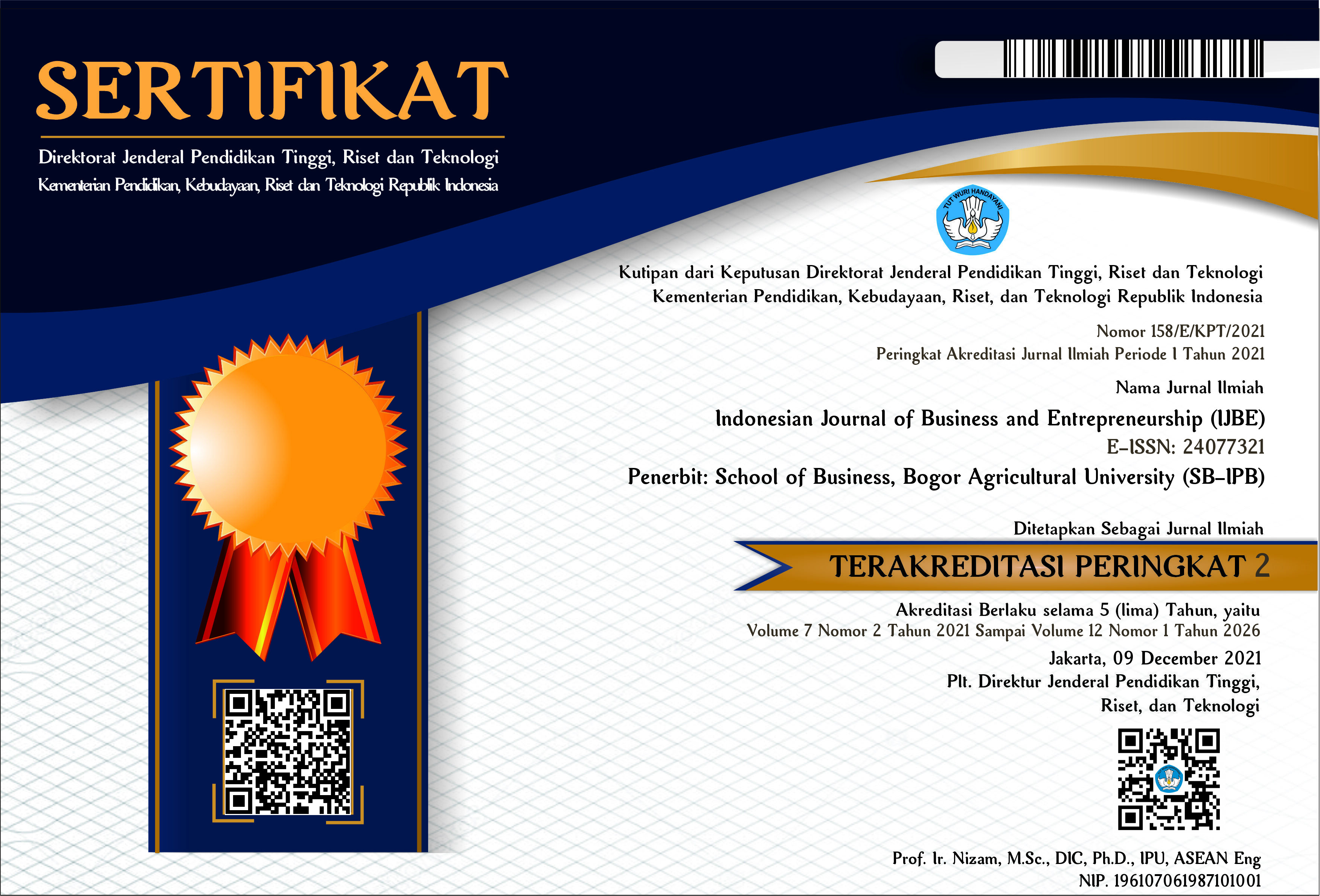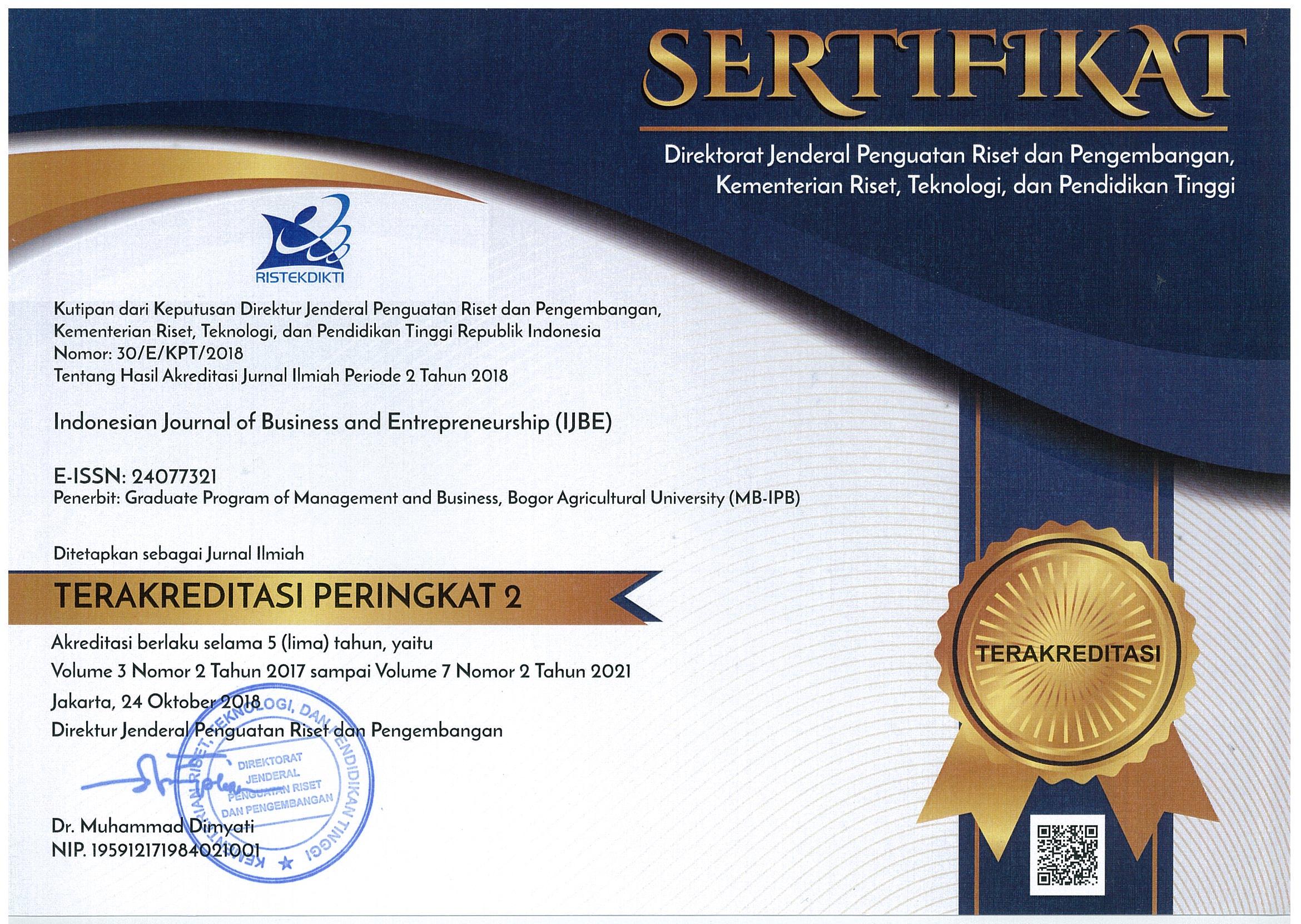Does National Culture Matter? An Exploratory Study on The Relationship of National Competitiveness and National Culture
Abstract
The purpose of the study is to examine empirically the relationship between national competitiveness and national culture. The study applied exploratory research design with national culture and national competitiveness treated as two independent variables. Hofstede’s national culture categorization namely masculinity, individualism, uncertainty avoidance, power distance, and long-term orientation was adopted. Cultural Index by GLOBE study and Global Competitiveness Index (GCI) by the World Economic Forum were used for the measurement. Descriptive statistic along with bivariate correlation analysis was used in this study. A number of samples involved in this study was 58 countries. The study concludes that national competitiveness is positively and significantly associated with national culture namely long-term orientation, uncertainty avoidance, and individualism. National competitiveness has a negative association with power distance national culture. However, national competitiveness was indicated no association with masculine national culture. The findings conclude that in general, national culture is a factor that explains why there are differences in national competitiveness among countries around the world. A suggestion for future similar research is that control variable such national income as well as the application of more sophisticated statistical analysis method should be included.
Keywords: exploratory study, global competitiveness index, national culture; national competitiveness; national culture index







